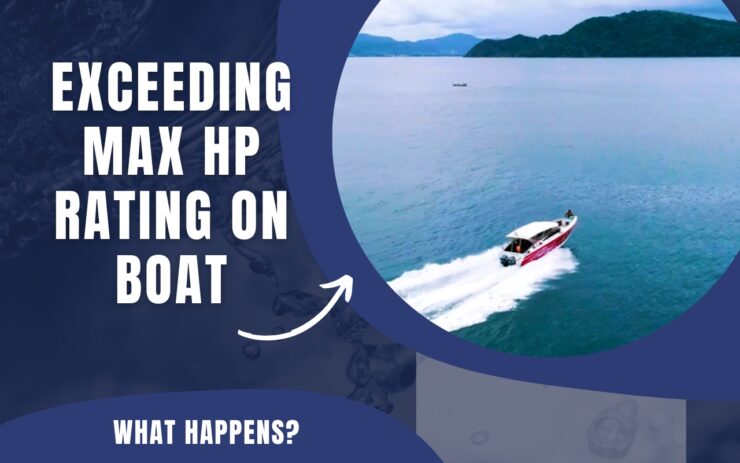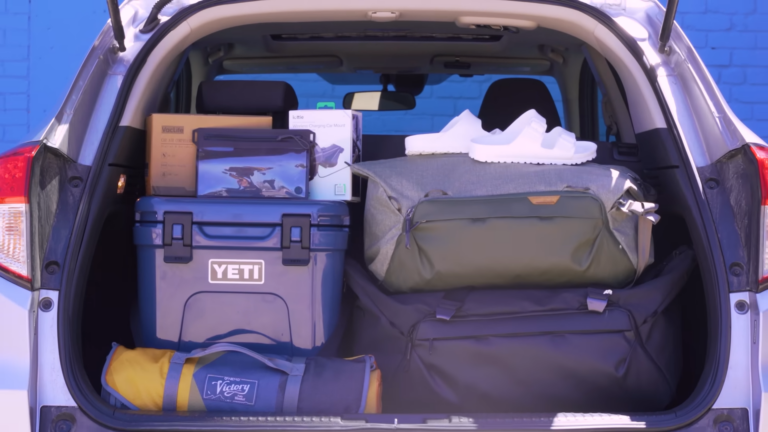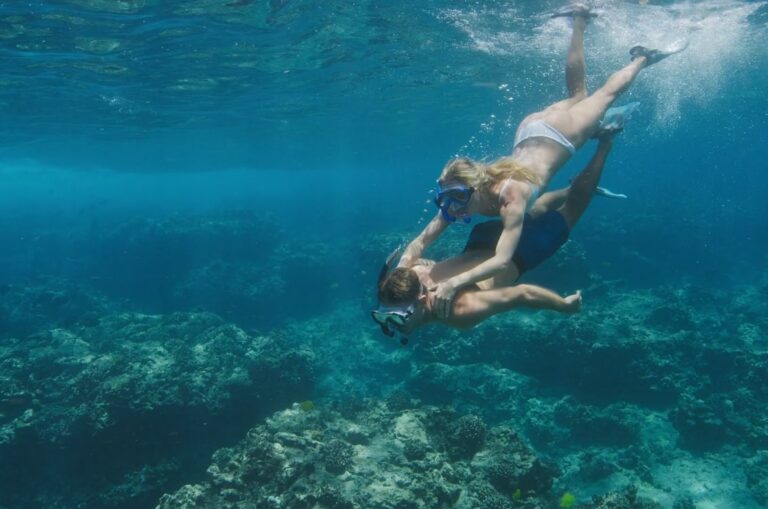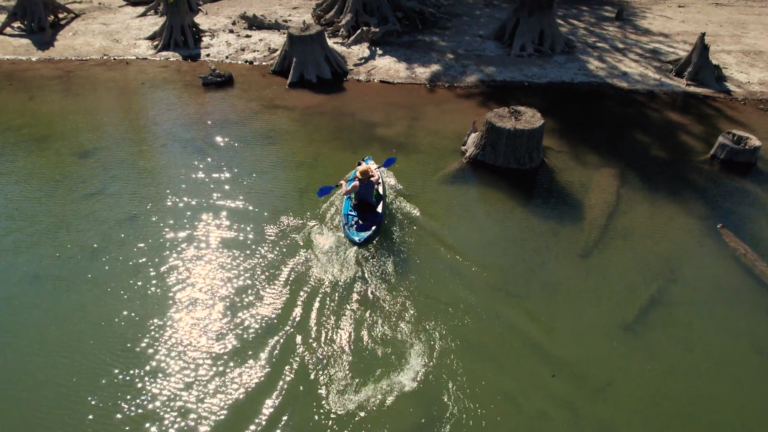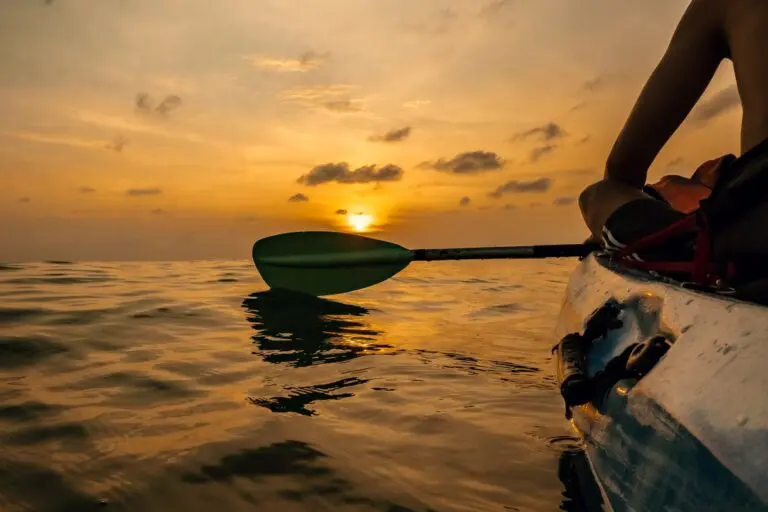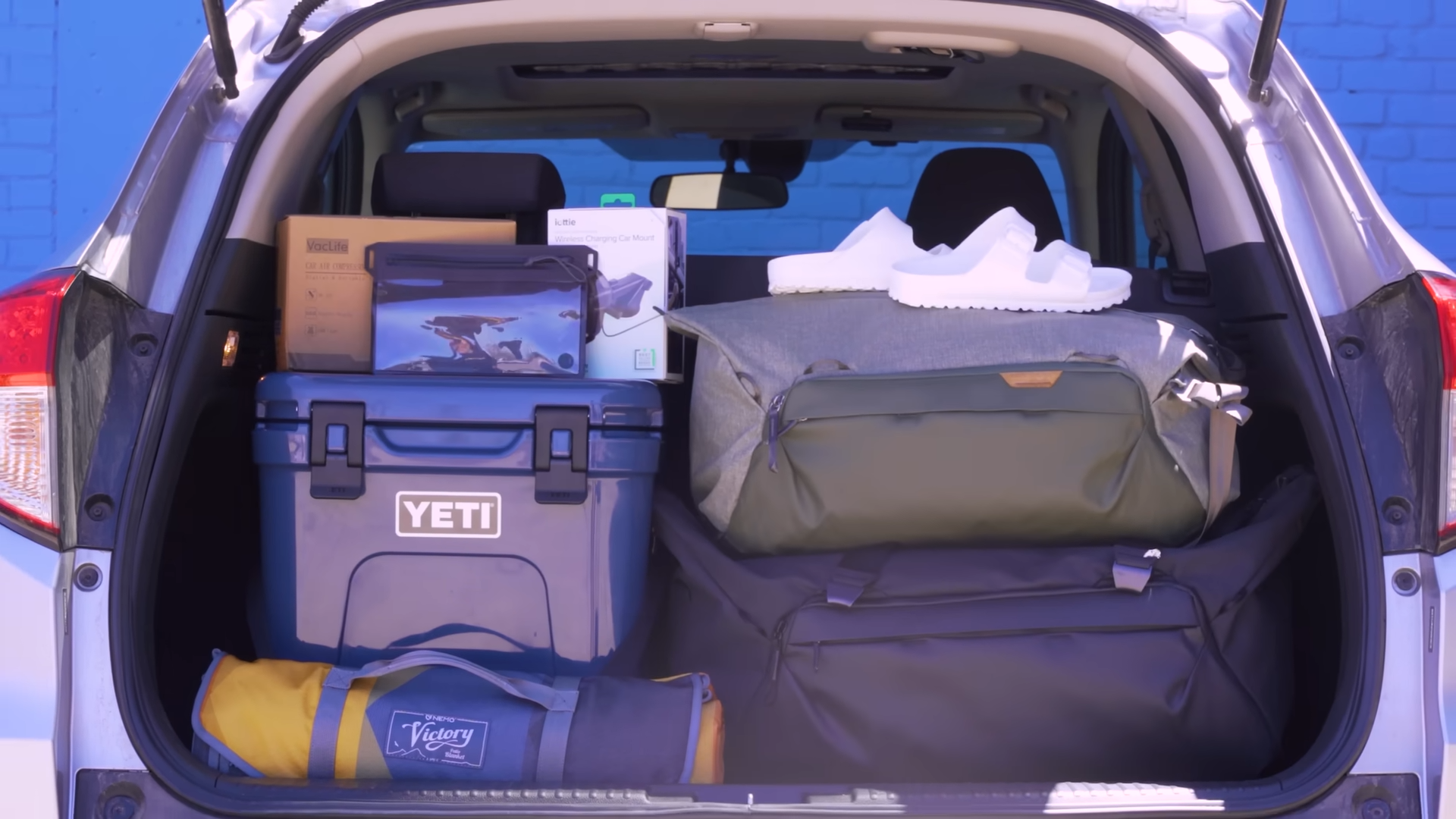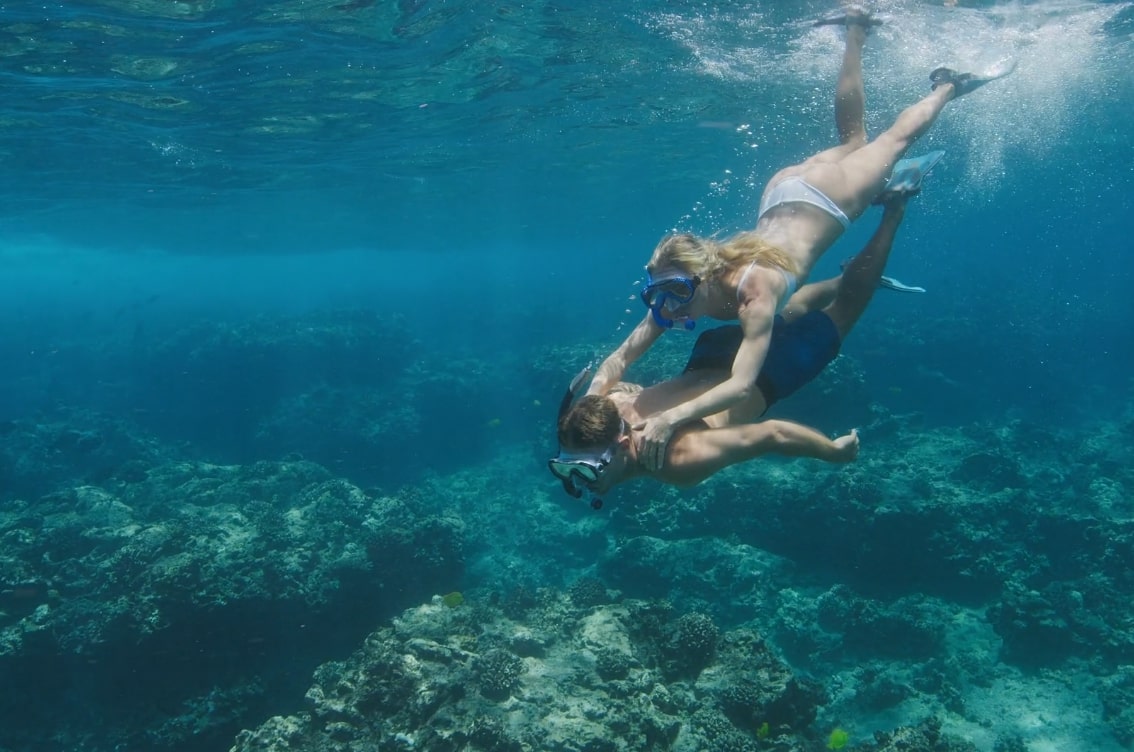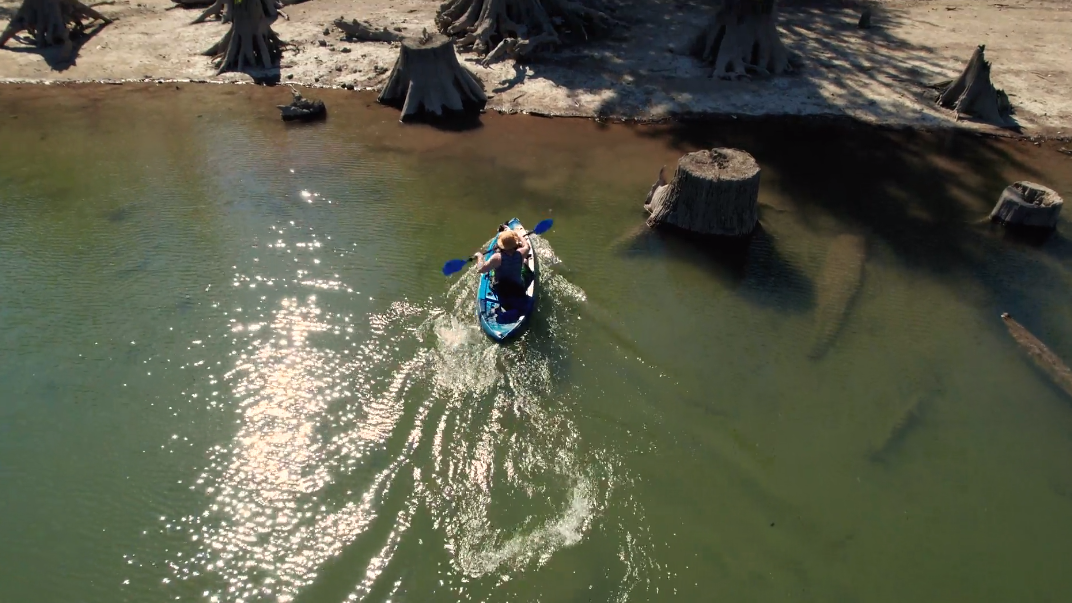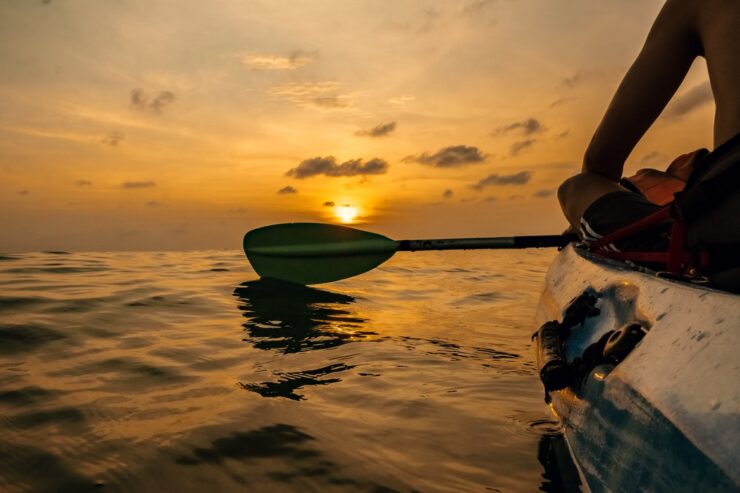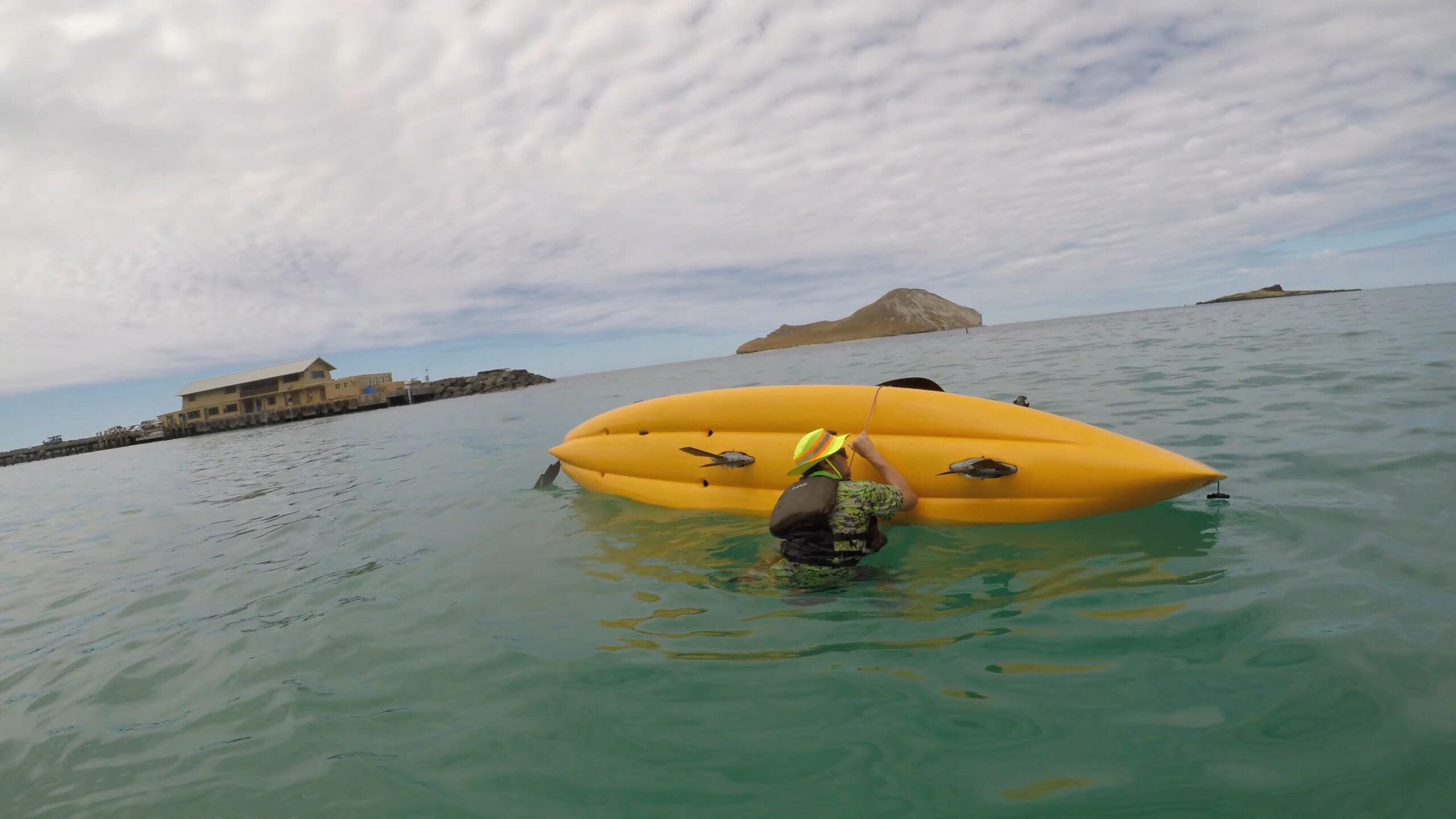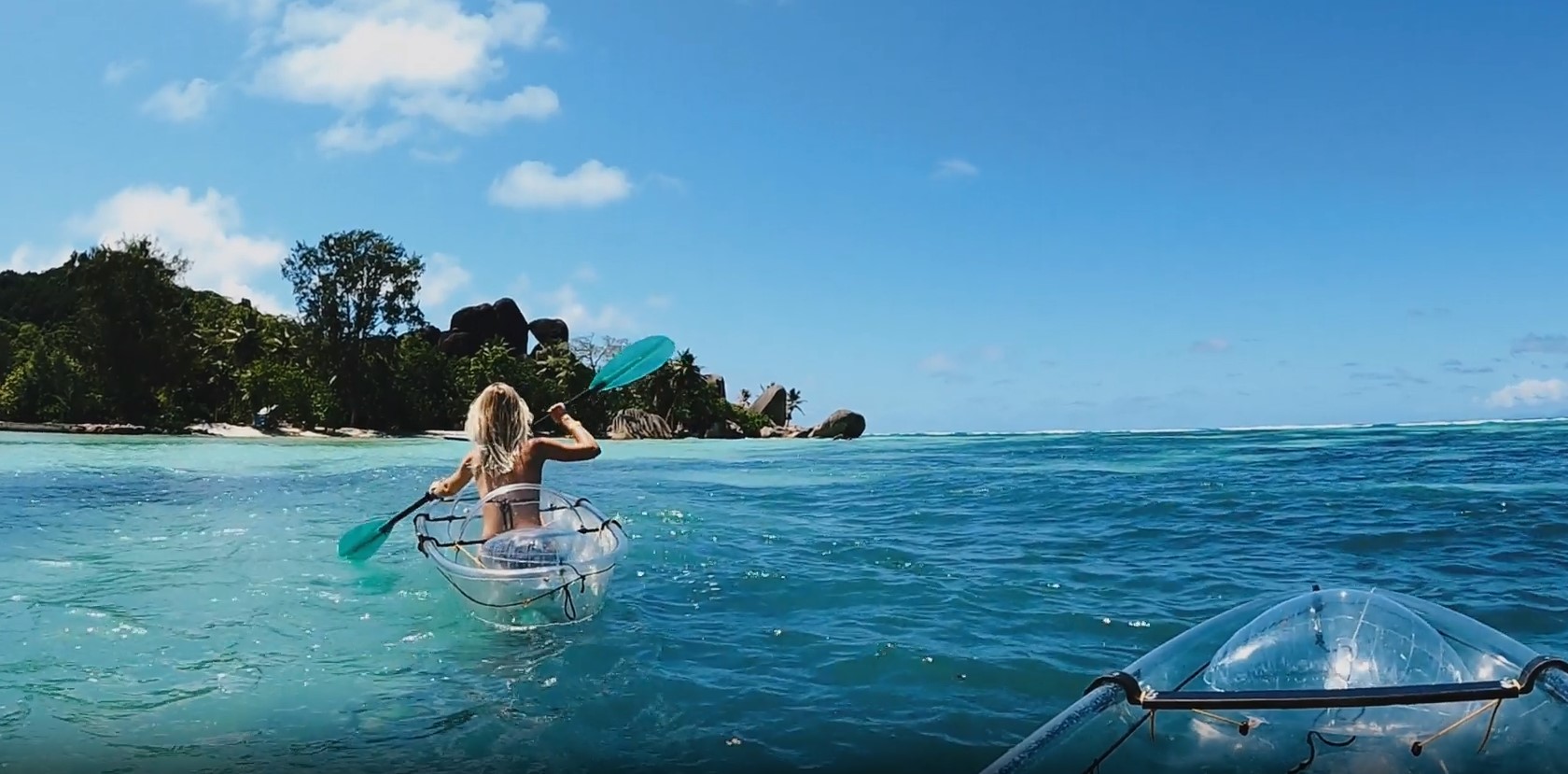Every vehicle that exists has certain limiting factors affiliated with them. For motor-based engines, horsepower is a limiting factor. Quite surprisingly, boats also have this limitation.
Nowadays, people are in a dilemma about the horsepower rating. Especially, people are curious about exceeding horsepower.
So, should you be exceeding the max hp rating on the boat?
This depends on you. You’ll get a more powerful and fast boat by exceeding the maximum horsepower of the boat. However, you might be sacrificing the insurance coverage of your favorite boat. If you’re overpowering the boat, calculate its max horsepower and upgrade it at a marine shop!
This is not everything you will need. Read till the end to know more. By reading this article, you can be sure about the dos and don’t of boat horsepower!
Table of Contents
ToggleWhat is Max HP Rating on a Boat?
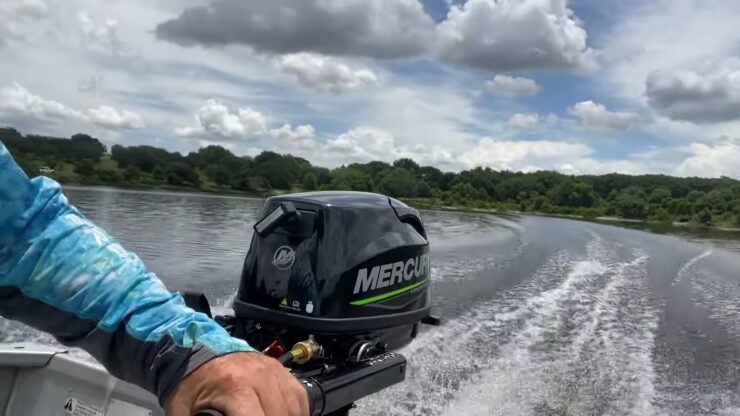
Boats require a lot of aspects to be checked off before taking it for a ride. Like the maximum number of people, the boat can take, the maximum load it can take, etc.
We should be familiar with what horsepower is. Speaking of horsepower, there is a maximum horsepower rating on boats. This determines the amount of horsepower a boat can have. There are certain limiting factors to this max horsepower set.
Now you might ask, why do boats have a max hp rating?
Well, this was instituted to make sure that no boats were using too much power. Improper engines and unreasonable power may cause the boat not to float normally. That is why the manufacturers were bound to put a max hp rating on boats. This results in reduced power waste and increased safety.
All this information might have you intrigued for knowing the procedure of calculating horsepower. Well, I can help you with that matter.
In the next segment, I have explained the full procedure of horsepower calculation for boats. Give it a good read!
How to Calculate the Maximum Horsepower of a Boat?
You can know the maximum horsepower of a boat by using its width and length. Multiplying them will give you the boat’s square footage.
If you don’t know the height and width of your boat, don’t worry. You can manually measure them using a measuring tape.
After measuring, figure out the square footage. It will ultimately dictate the maximum horsepower of your boat. To help you out, here is a maximum horsepower chart for you:
| Square Footage (feet) | Maximum Horsepower (HP) |
| 35 + | 3 |
| 36 – 39 | 5.5 |
| 40 – 42 | 7.5 |
| 43 – 45 | 10 |
| 46 – 52 | 15 |
This is how you can find out the maximum horsepower of your boat. Aside from this, the boat should have stickers mentioning the maximum horsepower.
Now that we know the basics of maximum horsepower, let’s dive deeper. You may be interested in increasing the horsepower of your boat.
But the question is, what happens if you overpower a boat? Read the following segment for the answer!
What Happens by Exceeding the Maximum Horsepower of a Boat?
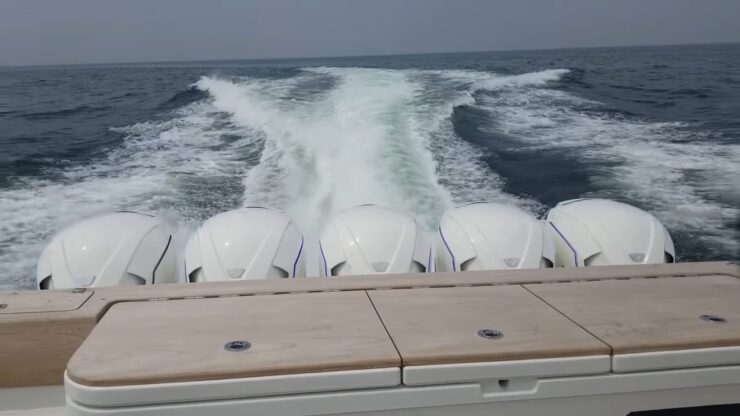
Overpowering your boat can be considered an upgrade. Usually, when you overpower a boat, the specs, engine size, weight, etc stay the same. The only thing that changes is some horsepower over the limit.
This extra horsepower helps with the boat’s speed and power. Many people relate horsepower with performance, which is a logical equivalence. For example, the speed of 90HP boats will be lower than a 120HP boat.
So technically the more horsepower your boat has, the better it can perform. However, it does have a couple of downsides. Some consider exceeding boat’s hp rating as a risky act.
In exchange for overpowering the boat, you can lose insurance coverage for it. According to the documentaries, your insurance will only cover the maximum horsepower.
If the horsepower goes beyond the maximum amount, it is out of their legislation. There are cases where the insurance company provides insurance based on the RPM.
Yet in most cases, overpowering boats result in loss of insurance. So if you’re okay with that, you are good to go.
Also, make sure that your boat is fit for the upgrade. For example, if you have an outboard and the outboard’s losing power under load, upgrade it.
Many people have questions about the legality of overpowering a boat. Well, it is legal for you but not for the manufacturers. The coast guard guidelines are applicable to the boat manufacturers.
After reading all this info, chances are you’re interested in overpowering your boat. But how to increase the HP rating on the boat? Check the next section for the answer.
How to Increase HP Rating on Boat?
Upgrading the horsepower rating of your boat will require some calculations. These calculations circulate around the transom and the weight of the boat.
If you are unsure about these, the easiest thing you can do is call your boat manufacturer. After you specify your boat model, year, and other information, they’ll approve or disapprove the upgrade.
In most cases, the size of the boat is not a concern. The new engine of your boat will consist of a newer jet size and better electronic tuning. The weight will not increase necessarily.
After you’ve confirmed with the manufacturer, you can go to the nearest marine shop. Just buy a stronger engine with higher horsepower and fit it in your boat.
After that, all that is left is to enjoy your new and powerful boat!
The Effects of Overloading Your Boat
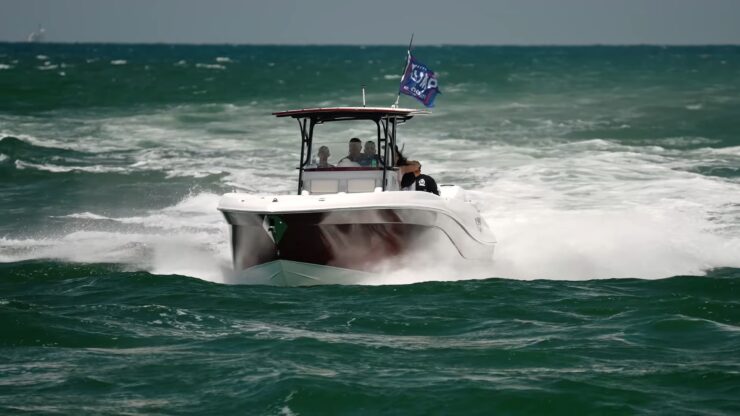
One of the most important safety considerations for boaters is the impact of overloading on boat performance and stability. Overloading a boat can have a number of negative effects, including weight distribution and stability concerns that can impact safety on the water. In this article, I’ll explore some of the effects of overloading your boat and how to avoid them.
One of the primary effects of overloading a boat is weight distribution issues. When a boat is overloaded, the weight is distributed differently than when the boat is at its proper weight capacity. This can cause the boat to sit lower in the water, which can impact stability and make it more difficult to control. The weight distribution can also affect the boat’s handling and performance, making it more difficult to turn, accelerate, or stop.
Another issue is the impact on stability. When a boat is overloaded, it can become unstable and more prone to tipping or capsizing. This is particularly true in rough waters or adverse weather conditions, where the added weight and instability can make the boat even more difficult to control.
Overloading a boat can also increase the risk of accidents or collisions, especially if the boat is unable to maneuver effectively or quickly.
To avoid the negative effects of overloading your boat, it’s important to follow the manufacturer’s recommended weight capacity and distribution guidelines. These guidelines are typically based on the boat’s design and construction and are intended to ensure optimal performance and safety on the water.
It’s also important to avoid overloading the boat with unnecessary or excessive gear, equipment, or passengers, and to distribute weight evenly throughout the boat.
FAQs
What is a compliance notice on a boat?
A compliance notice on a boat is a document that confirms that the vessel has met the requirements of applicable laws and regulations. The notice may be issued by a government agency or other regulatory body, and typically includes information about the boat’s compliance with safety, environmental, and other regulations.
For example, in the United States, the Coast Guard issues compliance notices to boats that have met the requirements of federal regulations, such as those related to safety equipment, pollution prevention, and navigation. These notices may be displayed on the boat and must be kept on board as proof of compliance.
What size motor can I put on my boat?
You can know the required size of your motor by the size and weight of your boat. It will also let you know about the HP requirement. For every 25 – 40 lbs, you will need 1 HP. That’s the rule of thumb. As an example, if your boat is 1600 lbs, you will need a 64 – 40 horsepower engine. This is also the safest way!
Why do cruise ships go so slow?
Cruise ships are designed to travel at a slower speed than other types of ships for a variety of reasons. While they are capable of reaching high speeds, they typically cruise at a slower pace for the following reasons:
- Comfort: Cruise ships are often designed with a focus on passenger comfort, and traveling at a slower speed can help reduce the impact of rough seas and other factors that can cause discomfort for passengers. Slower speeds also allow for smoother navigation and more stable conditions on board.
- Fuel Efficiency: Cruise ships are massive vessels that require a significant amount of fuel to operate. By cruising at a slower speed, they can conserve fuel and reduce costs. This can also have environmental benefits, as slower speeds can result in lower emissions and reduced carbon footprint.
- Safety: Cruise ships are typically carrying a large number of passengers, and traveling at high speeds can increase the risk of accidents or collisions. Slower speeds allow for more time to react to potential hazards and can increase the overall safety of the ship.
- Scenic Views: Many cruise ship routes are designed to showcase scenic views and natural beauty. Traveling at a slower pace can allow passengers to enjoy the views and take in the surroundings at a more leisurely pace.
- Ports of Call: Cruise ships often make stops at various ports of call, and traveling at a slower speed can help ensure that they arrive at their destination on schedule. Slower speeds can also allow for more precise navigation and maneuvering in crowded or narrow waterways.
Is it OK to run the boat at full throttle?
While it is generally safe to run a boat at full throttle, there are some important factors to consider to ensure the safety and longevity of your boat and its engine.
First and foremost, it’s important to consider the condition of your boat and its engine. Running a boat at full throttle can put a lot of strain on the engine and other components, so it’s important to make sure that everything is in good working order before pushing the boat to its limits. This includes regular maintenance and inspection of the engine, as well as checking for any damage or wear on the boat’s hull, propeller, and other parts.
Another important consideration is the environment in which you are operating the boat. Running a boat at full throttle in rough or choppy waters can be dangerous, as it can make the boat more difficult to control and increase the risk of accidents or collisions. It’s important to pay attention to weather conditions and water conditions and to adjust your speed accordingly to ensure safety on the water.
Is 500 hours on a boat engine a lot?
The number of hours on a boat engine is a key indicator of its overall condition and lifespan. While there is no exact threshold for what is considered a “lot” of hours on a boat engine, 500 hours is generally considered a moderate amount of usage.
Many modern boat engines are designed to last for thousands of hours, with proper maintenance and care. However, the amount of wear and tear on the engine can vary depending on a number of factors, including the type of engine, the boat’s use and environment, and the quality of maintenance and upkeep.
How long can a boat sit without running?
A boat can typically sit without running for a few weeks to a few months, depending on a number of factors. However, it’s important to take certain steps to ensure the boat remains in good condition during this time.
One of the key factors in determining how long a boat can sit without running is the type of engine. For example, a two-stroke engine may require more frequent use and maintenance than a four-stroke engine, as it may be more prone to issues such as gumming or corrosion when left unused for extended periods.
The Final Words
This is the final reach of this article. Hopefully, now you know the reasons behind an exceeding max hp rating on the boat.
Boat peripherals can always be changed. So if you cannot fix it, replacement is always an option!
Good luck.
I’m Liam Jackson, the proud owner and driving force behind KayakPaddling.net. Born somewhere in the expansive beauty of the United States, I’ve nurtured a lifelong passion for kayaking and fishing that has led me to explore the far corners of our nation’s waterways.
Related Posts:
- 16 Best Kayak For Beginners 2024 - Kayaking Adventure Gear
- 12 Best Beach Wagons & Carts 2024 - For All-Terrain
- 20 Best Inshore Spinning Reels 2024 - Capturing All…
- 10 Best Fish Finders Under $200 2024 - Top Affordable Picks
- Heavy Duty Fishing: 11 Best Rods And Reels For Big Fish 2024
- How to Stay Safe on Slow Moving Waters When Paddle Boarding?

